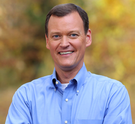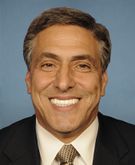Heart of the Primaries, Republicans-Issue 28 (August 13, 2018)

This week: Previewing the August 14 primaries. Click here to follow developments on the Democratic side. Have a tip or see something we missed? Email us at editor@ballotpedia.org. And please share this newsletter with your colleagues!
Upcoming filing deadlines: None
Passed filing deadlines: 51 (including Washington, D.C.)
Upcoming elections: August 14 (Connecticut, Minnesota, Wisconsin)
Declared U.S. Senate and U.S. House candidates: 1,180 Democrats, 1,029 Republicans
Republican pundits on the news
Where do Republican and conservative pundits disagree? Each week in Heart of the Primaries we bring you excerpts that highlight differing views.
“There’s a very good case to be made that Trump’s last-minute visit helped Balderson pull it out by bringing a couple thousand more Trump voters to the polls and plugging Jim Jordan. But otherwise, there is no reason for them to show up. The same reason they didn’t turn out for Romney (or previous Republicans) is the same reason they will not turn out with Trump not on the ballot and no agenda to excite them.”
- Daniel Horowitz, Conservative Review, Aug. 8, 2018
“Balderson was ahead of O’Connor by a razor-thin margin of 1,745 votes before the examination of all absentee and provisional ballots. This shows that talk of a blue wave sweeping Democrats to victories over GOP candidates is clearly premature.
Democrats are finding out that strong economic numbers like 4.1 percent annualized economic growth, 3.9 percent unemployment, and 3.4 million jobs created on President Trump’s watch will make success in November harder than expected for the left.”
- David N. Bossie, Fox News, Aug. 8, 2018
Connecticut
Five Republicans seeking gubernatorial nomination
Five candidates are seeking the Republican nomination for Connecticut's open gubernatorial seat. Political observers believe the GOP could win the seat in November owing to incumbent Gov. Dan Malloy's (D) 21 percent approval rating and Democratic losses in the 2016 legislative elections.
All five candidates have emphasized their plans to improve the state's fiscal situation and stimulate its economy.
Danbury Mayor Mark Boughton (R) won the state party's endorsement at its annual convention. Boughton, who is running on his record as a nine-term mayor, has called for increased education spending and phasing out Connecticut’s income tax.
Trumbull First Selectman Tim Herbst (R) also emphasizes his legislative background, arguing that under his leadership, the town experienced a fiscal turnaround. In addition to expanded public safety initiatives and an emphasis on supporting the defense industry, Herbst has called for repealing the state income tax for those making less than $75,000 annually.
The three remaining candidates have each argued their outsider status is crucial for running the state. Steve Obsitnik (R) is running on a plan promising to create 300,000 new jobs in eight years as well as a $100 billion infrastructure proposal.
Bob Stefanowski’s (R) economic recovery plan is built on zero-based budgeting and was endorsed by former Reagan adviser Dr. Art Laffer. Stefanowski has called for infrastructure investments and policies encouraging recent college graduates and senior citizens to remain in the state.
David Stemerman (R) says Connecticut should emulate policies that have proven successful in other states, pointing to Washington's use of priority-based-budgeting, Massachusetts' education policy, and Michigan's tax policy. Stemerman has also called for more infrastructure spending.
The August 14 primary is open only to registered Republicans.
DuPont, O’Neill, and Santos vie for GOP nomination in NRCC targeted CT-05
Retired psychology professor Ruby Corby O’Neill (R), retired manufacturing consultant Rich DuPont (R), and former Meriden Mayor Manny Santos (R) are competing in the Republican primary for Connecticut’s 5th Congressional District.
The Connecticut Republican Party endorsed Santos in May.
O’Neill and DuPont have raised more money than Santos, with O’Neill leading all candidates with $55,691 cash on hand through July 25.
At their final televised debate, the candidates had similar positions on trade and the opioid crisis.
O’Neill said neither of her opponents could win in the often-Democratic district, adding they would lose debates with either Democratic candidate.
DuPont said his record of creating public-private partnerships would garner support from the district’s large number of independent voters, and touted his endorsement from Nancy Johnson, the last Republican to represent the district.
Santos, who like O’Neill is an immigrant, stressed his life experience and described himself as someone "who can work with the current administration and the current leadership to get things done.”
Minnesota
Pawlenty and Johnson go head to head for gubernatorial nomination
In Minnesota's Republican gubernatorial primary, 2014 nominee Jeff Johnson (R) faces former two-term Gov. Tim Pawlenty (R).
The state party endorsed Johnson, a Hennepin County commissioner, after Pawlenty declined to contest the annual convention. Johnson wants to reduce the scope of government, calling for term limits, cutting tax rates, and auditing state spending.
Second quarter financial reports showed Pawlenty with a ten-to-one fundraising advantage over Johnson. Three former state party chairmen have endorsed him.
The August 14 primary is open to all registered voters.
Hagedorn and Nelson compete for Republican nomination in toss-up MN-01
The Republican Party is lining up behind two candidates for the open seat Minnesota’s 1st Congressional District: 2016 nominee Jim Hagedorn (R) and state Sen. Carla Nelson (R).
Both were named to the National Republican Congressional Committee’s “Contenders” program.
Hagedorn, who lost to incumbent Rep. Tim Walz (D-Minn.) by less than one percentage point in 2016, earned the district party’s endorsement at its April convention. He has emphasized the farming economy, energy, and national security in his campaign.
Nelson, a state senator since 2011, was endorsed by Susan B. Anthony List. National party leaders reportedly encouraged her to run.
State party officials were less supportive, concerned the GOP could lose control of the state Senate if a special election was called to fill her seat in a toss-up district. Nelson’s campaign has focused on health care, the federal budget, and education policies.
Andrew Candler (R) and Steve Williams (R) are also running for the seat.
Wisconsin
Nicholson faces Vukmir in Wisconsin Senate primary testing conservative loyalty
Marine Corps veteran Kevin Nicholson (R) and state Sen. Leah Vukmir (R) are competing in an expensive Republican Senate primary centered on party loyalty.
Nicholson has been criticized for his past as the former president of the College Democrats of America, while Nicholson called Vukmir a Trump opponent for critical comments she made of then-candidate Trump during the 2016 presidential election.
Vukmir has the support of national and state party leaders, earning endorsements from House Speaker Paul Ryan (R-Wis.), more than 50 state legislators and officials, and the Republican Party of Wisconsin.
FreedomWorks and the Tea Party Patriots Citizens Fund back Nicholson. The Club for Growth has spent more than $2.4 million supporting his campaign.
Both candidates have seven-figure support from satellite groups. The pro-Vukmir Wisconsin Next PAC, funded mainly by billionaire businesswoman Diane Hendricks, has spent more than $2.4 million on the race.
Richard Uihlein contributed $2 million to Solutions for Wisconsin in 2017 to encourage Nicholson to run. Another group funded primarily by Uihlein, Restoration PAC, has spent more than $4 million on the race.
Three other candidates are running: Charles Barman, Griffin Jones, and George Lucia.
Special guest analysis: Primary turnout
Jim Ellis is a 35-year political veteran who now analyzes election data for major corporations, associations, and legislative advocacy firms. He is president of Ellis Insight, LLC. We invited him to share analysis of primary turnout.
At this point in the 2018 election cycle, 37 states have held primary elections and so far the actual voting patterns may be contradicting some prognosticators and pollsters’ common wisdom. Most in the aforementioned group are predicting that Democratic voter enthusiasm is such that a "blue wave" could form. But when looking at who is actually turning out in the 2018 elections, a more typical midterm participation pattern exists.
More Republicans than Democrats are voting in states that tend to support GOP candidates, and more Democrats than Republicans are coming to the polls in places where the former party’s candidates typically win the preponderance of elections.
In the south and Rocky Mountain region, and pertaining to certain Midwest states, more Republicans are voting. In the east, Pacific Northwest, and a different Midwest domain subset more Democrats are voting. But, there are reasons to delve deeper within those numbers.
In California, while Democrats turned out in greater numbers for the statewide jungle primary in early June, more Republicans voted in six of the seven congressional districts where Democrats are targeting as must-win elections. Turning to Pennsylvania, where Democrats have more than an 800,000-person statewide voter registration advantage, the party turnout figure exceeded Republican participation by only about 15,000 individuals.
Looking at New York, where upstart candidate Alexandria Ocasio-Cortez knocked ten-term Rep. Joe Crowley (D) from the Democratic ballot and forcing him to only appear on the Working Families Party line in the general election, only 27,658 people voted, allowing the challenger to win with under 16,000 votes. Statewide, in 13 Democratic congressional primaries, the party averaged a turnout percentage of just over 11 percent.
Yet in two states that have been consistently voting Republican since the turn of the century, West Virginia and Kentucky, more Democrats voted in those state primaries. Thus, we are seeing some examples of juxtaposition within the electorate, which makes predicting the fall results even more difficult. Primary turnout does not ultimately predict general election participation figures or results, but it does provide an idea of how the electorate is responding. While news reports, generic polls, certain presidential approval ratings, and some more local special election results suggest 2018 will be a more Democratic year than in recent past midterm elections, actual voter participation in two-thirds of the states already holding primary elections appear to be foretelling a different story.
Candidate survey reply of the week
Ballotpedia is surveying candidates ahead of the primary and general elections. Are you a candidate for public office? Complete a survey, and you may be featured here.
What would be your top three priorities, if elected?
“My top three priorities are keeping Pennsylvania’s families safe, protecting Pennsylvania jobs, and standing up for the men and women who serve our communities. More than anything, people want someone willing to fight for them, when no one else will. That’s what I have always done, and that’s why I’m running for the U.S. Senate.”
- Lou Barletta, candidate for United States Senator for Pennsylvania
Read all of Lou Barletta's responses →
Power Players
A weekly feature on an influencer shaping the direction of the party.
Robert Mercer
Former hedge fund manager Robert Mercer has contributed at least $800,000 to KelliPAC, a super PAC that supports Kelli Ward in the Republican primary for Arizona's open Senate seat.
Mercer made an initial $300,000 contribution to the super PAC July 27, 2017. He gave another $500,000 June 29 of this year. Mercer provided almost 60 percent of KelliPAC's reported contributions (those over $200) through June 30. The group has been spending on ads and mailings.
Ward faces U.S. Rep. Martha McSally and former Maricopa County Sheriff Joe Arpaio in the GOP primary. Incumbent Sen. Jeff Flake, a prominent Republican critic of the president, is retiring.
Support for the president is a central theme in the race. Ward has campaigned on her support of Trump, particularly his immigration policies.
After the 2016 presidential primaries, Mercer contributed $2.5 million to Make America Number 1, a super PAC opposed to Hillary Clinton. Before June, the group was called Keep the Promise 1 and supported Ted Cruz's primary bid. Mercer contributed $11.2 million to the super PAC during the primary.
When Ward ran against Sen. John McCain in 2016, Mercer contributed $700,000 to KelliPAC.
Mercer invested and held a stake in Breitbart News from 2011 to 2017, when he sold his stakes to his daughters. He has contributed to several super PACs and the National Republican Congressional Committee.
What we're reading
- Kansas House primary races in Johnson County reflect divided GOP Kansas City Star
- New Kansas poll: Colyer, Kobach knotted at 32 percent in GOP race for governor The Topeka Capital
- Energize the Elephants National Review
- Trump saved Balderson in Ohio, but he can’t carry the midterms by himself Conservative Review






